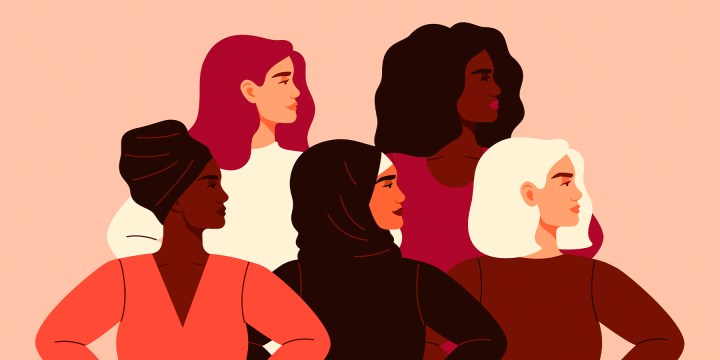INTERNATIONAL DAY OF THE GIRL CHILD
We must combat gender disparity in education during the Covid pandemic, webinar told

On Monday, the United Nations Population Fund, the British Council and their partners hosted a virtual dialogue to commemorate the International Day of the Girl Child.
“Young people, young girls are the future of this country,”said Tamara Mathebula of the Commission for Gender Equality (CGE) during a webinar on Monday to celebrate International Day of the Girl Child.
The webinar was a platform for different players across different spheres to engage on issues adolescent girls face during the Covid-19 pandemic.
Sarah Reis, a gender specialist at the United Nations Population Fund, said: “As part of the UN we are not only committed to leaving no one behind but also we have the commitment of reaching those furthest behind first.
“In South Africa, unfortunately, those furthest behind are adolescent girls and young women. Women are faced with limited prospects of education, employment and self-determination. In this context, the inequity and exclusion gap across geographies and generations is deepened even more for a girl child.”
According to Caroline Grant, head of English for Education Systems at the British Council, Africa has the highest gender disparity in education in the world across metrics such as literacy and drop-out rates.
Additional barriers to education for girl children have been exacerbated by Covid-19.
Grant said the solutions require long-term, consistent work by a range of partners and stakeholders.
“There can be no significant long-term improvement for girls without working with teachers, school leaders, government ministries, agencies and harnessing the power of local communities. There can also be no improvements without data to measure them,” she said.
Grant said the British Council’s presence and long-term commitment to quality education in Africa provided an in-depth understanding of the education systems and the cultural context.
“Our relationship with key states and non-state agencies helps us to amplify the impact of our work. We should be able to and we want to engage strategically and encourage gender responses to approaches and focuses on girls’ education,” she said.
Explaining the role of the CGE in a girl child’s education, CGE chairperson Mathebula said the institution “has a constitutional and a legislative mandate to promote and protect and ensure there is development and attainment of gender equality by all, including the girl child”.
As a priority, the CGE is focused on ensuring that sexual reproduction education is implemented in schools and it works closely with the other entities and bodies responsible for the education of children in and out of school. Mathebula said the commission monitors any gender-related discrimination.
Lebohang Schultz, a specialist in HIV at Unicef South Africa, said that because Covid-19 increased the impact of dropping out, adolescent pregnancies, HIV infections and gender-based risks, South Africa has to work on an investment plan to address systemic challenges facing girls.
“South Africa has enabling and very progressive policies. However, we still have to see the implementation and scale-up of interventions that align with the policies implemented across the nation,” said Schultz.
“As Unicef, we work across the lifecycle and across programmes to address issues that young people face and have programmes around education where we are looking at skills implemented in schools. Also, programmes looking at child protection and social protection for children, adolescence and young women to address their needs and challenges. These relate to nutrition, HIV as well as the Expanded Programme on Immunisation.”
Unicef is currently implementing a joint programme with the United Nations Population Fund and the government of Canada to empower adolescent girls to understand their sexual reproductive rights and raise awareness of issues around gender-based violence. DM/MC
"Information pertaining to Covid-19, vaccines, how to control the spread of the virus and potential treatments is ever-changing. Under the South African Disaster Management Act Regulation 11(5)(c) it is prohibited to publish information through any medium with the intention to deceive people on government measures to address COVID-19. We are therefore disabling the comment section on this article in order to protect both the commenting member and ourselves from potential liability. Should you have additional information that you think we should know, please email [email protected]"




 Become an Insider
Become an Insider